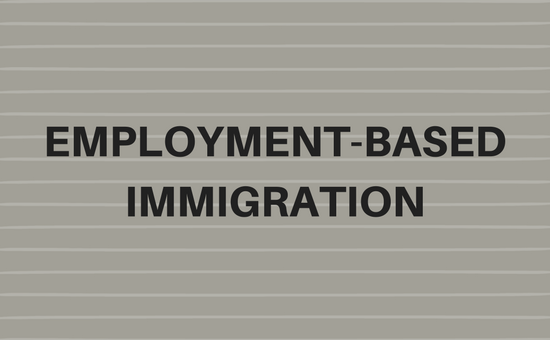A noncitizen businessperson with knowledge of how comparably easy it is for many people to get a B-1/B-2 visa might wonder if B-1 status (the status that one may enter the US with, when one has a B-1/B-2 visa) will be suitable for his or her business activities in the US. Mangers of a company, wishing to send some of its personnel to the US temporarily, might wonder the something similar.
B-1 status is sometimes suitable to a businessperson’s US activities. Sometimes it is not. (It is worth noting that more than just businessmen and businesswomen may have B-1 status.)
In determining whether an individual qualifies for a B visa, a consular officer, deciding whether to grant the visa, will look at a few things: (1) whether the individual will stay in the US only temporarily, (2) whether the individual will leave the US when he or she is supposed to, (3) whether the purpose of the individual’s trip is to engage in allowed activities related to business (or, depending on the kind of B visa, business and/or pleasure), and (4) whether the individual can afford to stay in the US and afford to travel to and from the US.
A CBP officer will look at these things to, when deciding whether an individual may be admitted in B-1 status.
A individual’s planned activities are particularly worth considering when determining whether a B-1 visa or B-1 status is suitable. An individual’s planned activities—the purpose of the visit—must be allowed in B-1 status, or else B-1 status is inappropriate. What does this mean? What is allowed?
Someone with B-1 status can do things on the following non-exhaustive list:
- Meet with business associates
- Negotiate contracts
- Take part in activities or perform actions of a temporary nature incident to international trade (these activities or actions often make the individual appear to be employed in the US)
- Make commercial transactions
- Attend a business convention
- Research an opportunity to open a business
- Secure funding for a new business
- Work (that is, there are exceptions to the general rule that someone cannot work in B-1 status)
- Participate in a short-term training program.
In addition, a B-1 visitor may engage in litigation; perform independent research; install, repair, or service equipment or software; train US workers to install, repair, or service equipment or software.
In addition, some people may use a B-1 visa in lieu of certain H visas.
As noted above, there is an exception to the general rule that someone with B-1 status may not engage in local employment or in labor for hire in the US. Despite the general rule, a B-1 visitor may in many instances work as an employee for a non-American business. Generally, the B visa holder’s activities must be connected to or part of the visa holder’s employment abroad; this way, the B-1 visitor is engaged in activities incident to international trade. What’s the difference between local employment and international trade activities? In many cases, it’s difficult to tell. There is not bright-line rule to use. The government accurately notes in 9 FAM 402.2-5(A)(b): “It can be difficult to distinguish between appropriate B1 business activities, and activities … that are not appropriate on B status.”
